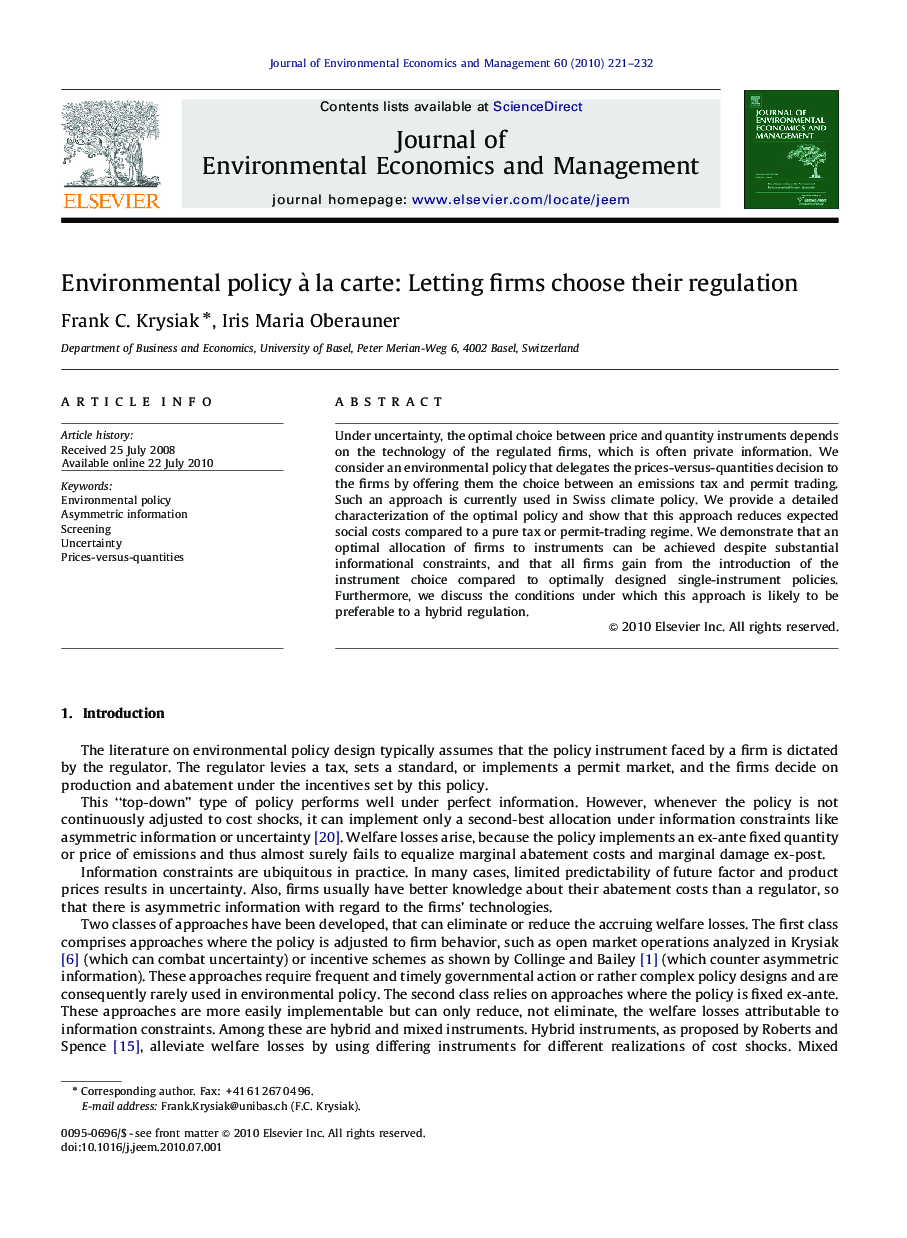| Article ID | Journal | Published Year | Pages | File Type |
|---|---|---|---|---|
| 959277 | Journal of Environmental Economics and Management | 2010 | 12 Pages |
Under uncertainty, the optimal choice between price and quantity instruments depends on the technology of the regulated firms, which is often private information. We consider an environmental policy that delegates the prices-versus-quantities decision to the firms by offering them the choice between an emissions tax and permit trading. Such an approach is currently used in Swiss climate policy. We provide a detailed characterization of the optimal policy and show that this approach reduces expected social costs compared to a pure tax or permit-trading regime. We demonstrate that an optimal allocation of firms to instruments can be achieved despite substantial informational constraints, and that all firms gain from the introduction of the instrument choice compared to optimally designed single-instrument policies. Furthermore, we discuss the conditions under which this approach is likely to be preferable to a hybrid regulation.
